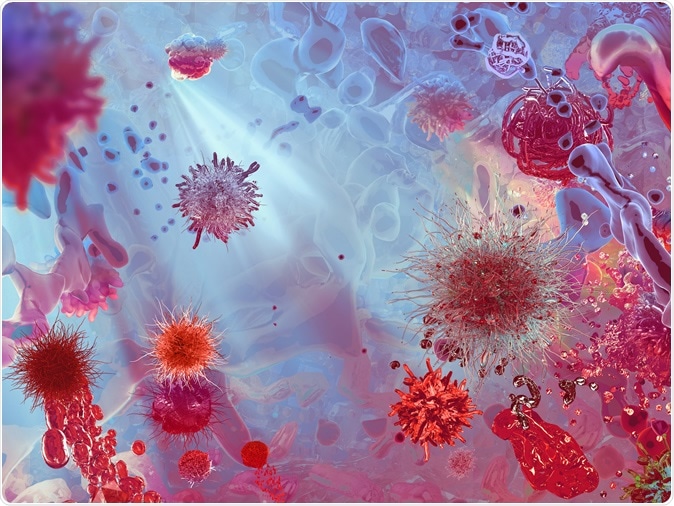The human body has been studied for centuries, but there are still mysteries that are yet to unfold. For instance, it was discovered that there are trillions of bacteria living inside the body, those that are beneficial for health. Now, studies are focused on studying the human microbiome and how they affect health and well-being.
A team of researchers at Stanford University lays the groundwork on the human microbiome for future investigation on how the trillions of bacteria, fungi, and archaea found in the body compete for nutrients, resources, attack, and co-exist with one another.
The new findings, which are published in the journal Cell, unveil more about the very diverse species of human flora, making it possible to formulate new treatments that could potentially cure diseases, even those which are considered untreatable.

The findings came from an analysis of 1,773 human-associated metagenomes sampled from four different body sites. (Credit: Tsvetkov Maxim/Shutterstock)
Potential of tiny messenger proteins
The study investigators aim to identify and examine the small messenger proteins used by microbes living inside humans. They found that there is indeed an astounding diversity of the human flora, with more than 4,000 families of molecules, most of which were not yet described or discovered.
"Because it is much more difficult to search for sequences encoding small proteins than it is to trawl for large proteins, our comprehension of the small proteins expressed by microbial communities has always been lacking," Nikos Kyrpides, a Berkeley Lab senior scientist and study co-author, said.
He added that tiny proteins made up of 50 or fewer amino acids, which can pass through cell membranes and cell walls, perform various vital tasks for the organism, mediating interactions of the organism and the environment. In fact, with their small size, they can easily fold into unique shapes that represent previously unidentified biological building blocks.
The functions of the messenger proteins, and since they are easier to manipulate and synthesize than larger molecules, make these tiny proteins good targets and sources of novel therapies and medicines. Also, if scientists can manipulate and recreate the shapes of the tiny proteins, these molecules can open the doors in the advanced development and discovery of a new drug.
Highly abundant small proteins perform diverse functions
“It’s critically important to understand the interface between human cells and the microbiome,” Dr. Ami Bhatt, assistant professor of medicine and genetics and senior researcher, said.
“How do they communicate? How do strains of bacteria protect themselves from other strains? These functions are likely to be found in very small proteins, which may be more likely than larger proteins to be secreted outside the cell,” she added.
However, since the proteins are very tiny, it has been challenging to study them using conventional methods.
“We’ve been more likely to make an error than to guess correctly when trying to predict which bacterial DNA sequences contain these very small genes. So, until now, we’ve systematically ignored their existence. It’s been a clear blind spot,” she added.
In the study, the researchers systematically identified small proteins by carrying out a comparative genomics study on 1,773 human-associated metagenomes from four various body locations. They found more than 4,000 conserved families, where most are new and have not previously discovered.
More than 30 percent of the protein families were suspected to be secreted or transmembrane. Also, over 90 percent of the small protein families have no known domain, and about half are not represented in reference genomes.
The researchers hope to study small proteins further and in-depth. Small proteins can be manipulated and synthesized easier and faster than larger molecules. As a result, they can act as biological switches to toggle between functional states or trigger reactions in other cells. Hence, they could open the door for the development of new drugs, which can help treat many diseases.
Source:
Journal reference:
Sberro, H., Fremin, B., Zlitni, S., Edfors, F., Greenfield, N., Snyder, M., Pavlopoulos, G., Kyrpides, N., and Bhatt, A. (2019). Large-Scale Analyses of Human Microbiomes Reveal Thousands of Small, Novel Genes. Cell. https://www.cell.com/cell/fulltext/S0092-8674(19)30781-0